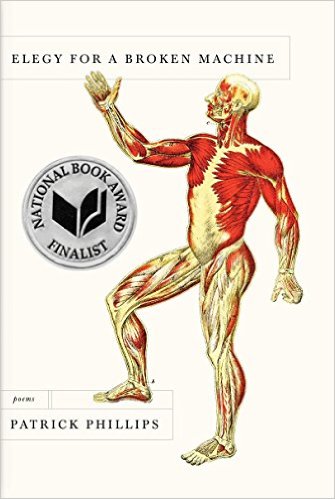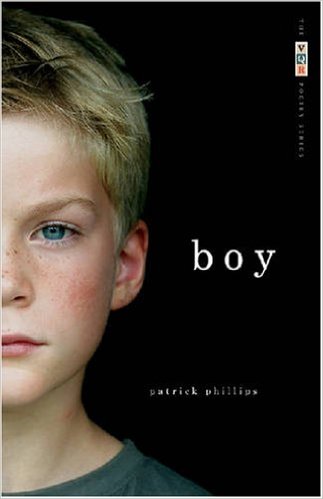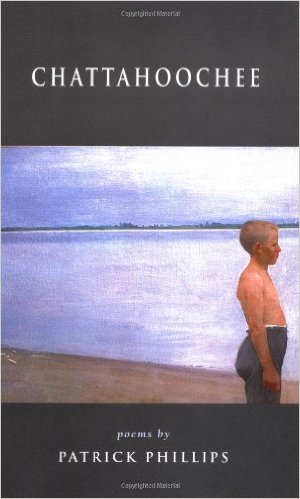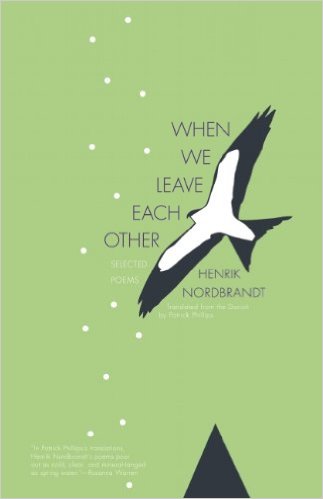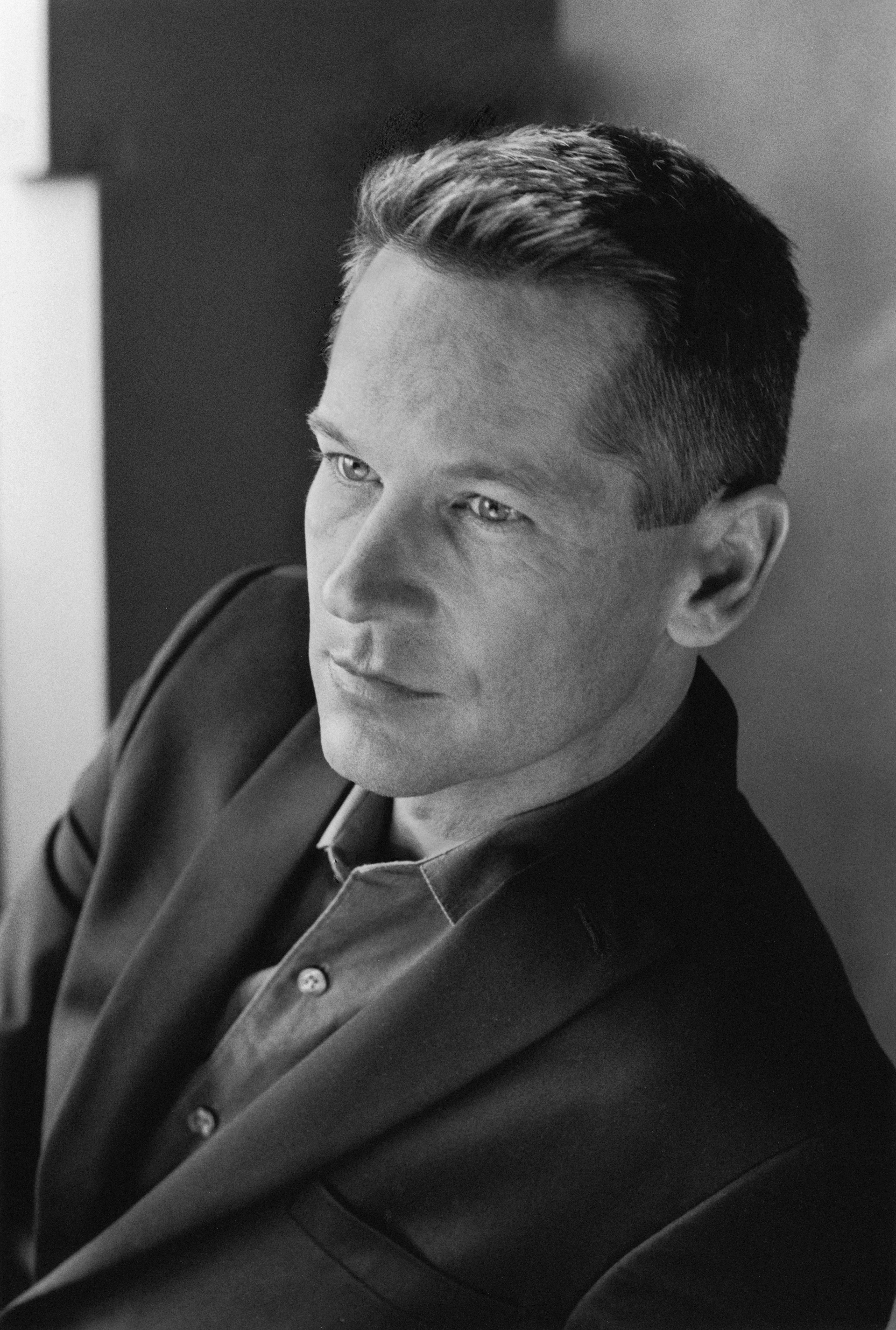

Patrick Phillips
Award-winning Poet & Translator
National Book Award Finalist
Nonfiction Author
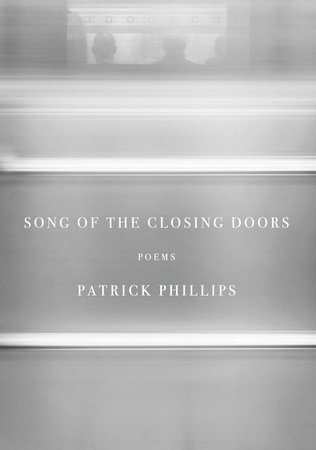
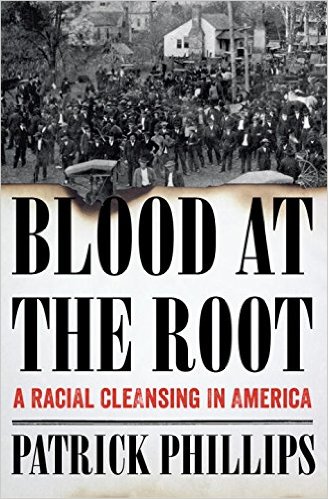
Readings &
Lecture Topics
• An Evening with Patrick Phillips
Biography
“Some would say that Patrick Phillips should leave well enough alone and keep quiet….But his voice is too honest, too brave, and too brilliant to be silenced.” —Tayari Jones
“Patrick Phillips reminds us that love calls us to the things of this world in all its beauty, sorrow, comedy, and vanishing.”—NBA Judges’ Citation
“There are poets of domestic life and there are poets of the sublime, and Patrick Phillips is both.” —Tom Sleigh
Poet Patrick Phillips was born in 1970 in Atlanta and raised in the Appalachian foothills of north Georgia. In his first book of nonfiction, Blood at the Root: A Racial Cleansing in America (W. W. Norton, 2016), he delves into the issues of race relations and breaks the century-long silence of his home town—telling the story from 1912, when three young black laborers were accused of raping and murdering a white girl—revealing deeply embedded secrets that continue to shape all of America in the twenty-first century. A review in The Library Journal states: “In gripping and devastating detail, writer and poet Phillips uncovers a history of lynching, racial violence, terrorism, and white supremacy….There are few heroes in this accounting, which stands as a sobering reminder that the racial fantasies and fears that have ruled so much of our history only continue to haunt the present.” A harrowing testament to the deep roots of racial violence in America, former United States Poet Laureate Natasha Trethewey declares Blood At the Root to be “A powerful, timely and necessary reckoning with the past.”
Through his poems, Phillips tells stories of earlier generations of his white, working-class family’s life in Birmingham, Alabama; he grapples with race relations, the complex dynamics of family relationships, parenthood, and mortality. His most recent collection, Song of the Closing Doors (Penguin Random House, 2023), shines with love and honesty as it celebrates simple pleasures that bring us this poet at his burnished best. Elegy for a Broken Machine (Alfred A. Knopf, 2015)—a stunning collection of elegies that bear witness to the small beauties and inevitable losses of our transient life—was named a finalist for the National Book Award in Poetry. He is the author of two earlier poetry collections, Boy, which navigates the course of the male experience, and particularly young fatherhood, and Chattahoochee, winner of the 2005 Kate Tufts Discovery Award.
Phillips is also the translator of When We Leave Each Other: Selected Poems of Henrik Nordbrandt (Open Letter, 2013), a book he began when he was a Fulbright Scholar at the University of Copenhagen’s Centre for Translation Studies, and which went on to win the Translation Prize of the American Scandinavian Foundation. A recent Guggenheim and National Endowment for the Arts fellow, his work has appeared in many magazines, including Poetry, Ploughshares, and The Nation, and his honors include the Kate Tufts Discovery Award, a Pushcart Prize, and the Lyric Poetry Award from the Poetry Society of America. Phillips teaches writing and literature at Stanford.
Short Bio
Patrick Phillips is the author of a book of nonfiction, Blood at the Root: A Racial Cleansing in America (W. W. Norton 2016), and three poetry collections. He is also the author of the poetry collections Song of the Closing Doors; Elegy for a Broken Machine, which was named a finalist for the 2015 National Book Award in Poetry; Boy; and Chattahoochee. He is also the translator of When We Leave Each Other: Selected Poems of Henrik Nordbrandt. A Guggenheim and National Endowment for the Arts fellow, Phillips’ work has appeared in many magazines, including Poetry, Ploughshares, and The Nation, and his honors include the Kate Tufts Discovery Award, a Pushcart Prize, and the Lyric Poetry Award from the Poetry Society of America. Phillips teaches writing and literature at Stanford.
Visit Author WebsiteVideos
Publications
Song of the Closing Doors
Poetry, 2023
“I will consider a slice of pizza,” opens Phillips’s poem “Jubilate Civitas.” “For rare among pleasures in Gotham, it is both / exquisite and blessedly cheap.” Thus, as throughout this collection, he celebrates a simple pleasure that “in a time of deceit . . . is honest and upright, steadfast and good”; even the busted buttons we press when waiting to cross the street make for elegy in a collection that brings us this poet at his burnished best. Phillips finds his love of a complex, vibrant city extends to his dearest people—he writes for his friend Paul, dying of cancer; for his wife’s stormy eyes when they fight; for the baby boy he once woke at night to feed and change. All these and more pass through Phillips’s elegant yet colloquial lines, in a book that shines with love and honesty on every page. As he writes, “If you’re reading this / we were once friends.”
Blood at the Root: A Racial Cleansing in America
Nonfiction, 2016
“There are places the civil rights movement literally passed by, and for decades Forsyth County was one of those pockets. Blood at the Root is a vital investigation of Forsyth’s history, and of the process by which racial injustice is perpetuated in America.” —John Lewis, US Congressman
A gripping tale of racial cleansing in Forsyth County, Georgia, and a harrowing testament to the deep roots of racial violence in America.
In 1912, a young girl’s murder rocked the rural community of Forsyth County, Georgia, and led a mob of whites to lynch a black man on the town square. A month later, thousands cheered the hanging, on spurious evidence, of two black teenagers, then set fire to the homes and churches of farmers, field hands, and servants. Bands of night-riders declared Forsyth “whites-only” and sent 1,100 citizens running for their lives. Whites took over their livestock, harvested their crops, and laid claim to “abandoned” black land, slowly erasing all evidence of their communal crime.
Blood at the Root is a sweeping American tale, spanning the Cherokee removals of the 1830s, the hope and promise of Reconstruction, and the crushing injustice of Forsyth’s racial cleansing. The story continues to the verge of our own era, including a violent attack on civil rights activists in 1987, as residents fought to “Keep Forsyth White” well into the 1990s. Patrick Phillips breaks the century-long silence of his hometown and uncovers a history of racial terrorism that continues to shape America in the twenty-first century.
Elegy for a Broken Machine
Poetry, 2015
“Phillips examines masculinity and loss with a surgeon’s precision in his elegiac third book. The figures of father and son, brother and husband, all play out here–often simultaneously–and Phillips’s careful language consciously breaks down these distinctions, fusing the roles men play throughout their lives, and connecting past to present.” —Publishers Weekly
The poet Patrick Phillips brings us a stunning third collection that is at its core a son’s lament for his father. This book of elegies takes us from the luminous world of childhood to the fluorescent glare of operating rooms and recovery wards, and into the twilight lives of those who must go on. In one poem Phillips watches his sons play “Mercy” just as he did with his brother: hands laced, the stronger pushing the other back until he grunts for mercy, “a game we played // so many times / I finally taught my sons, // not knowing what it was, / until too late, I’d done.” Phillips documents the unsung joys of midlife, the betrayals of the human body, and his realization that as the crowd of ghosts grows, we take our places, next in line. The result is a twenty-first-century memento mori, fashioned not just from loss but also from praise, and a fierce love for the world in all its ruined splendor.
Boy
Poetry, 2008
“In sparse, deft, and elegant language, Phillips’s remarkable second book of poems, Boy, places the poet midway between the lives of his parents and the lives of his children, where ‘the endless dream / of childhood’ has given way to the reality that ‘whole human beings / sprang from us.’ From this vantage point, he celebrates the wonderful simultaneity of experience that allows him to be, all at once, father, son, man, and boy.” —Michael Collier
This follow-up to Patrick Phillips’s award-winning debut navigates the course of the male experience, and particularly young fatherhood. Like Virgil’s Aeneas, the book’s central figure is in the middle time of life, a grown man with an aging father on his shoulders and a young son at his hand. Phillips’s plainspoken and moving lyrics add an important voice to the poetry of home as they struggle to reconcile fatherhood and boyhood, present and past, and the ache of loving what must be lost. Michael Collier writes, “In sparse, deft, and elegant language, Phillips’s remarkable second book of poems, Boy, places the poet midway between the lives of his parents and the lives of his children, where ‘the endless dream / of childhood’ has given way to the reality that ‘whole human beings / sprang from us.’ From this vantage point, he celebrates the wonderful simultaneity of experience that allows him to be, all at once, father, son, man, and boy.”
Chattahoochee
Poetry, 2004
“Patrick Phillips’s depiction of the small town Georgia community in which he was raised is by turns harrowing and tender, full of communal warmth and racial hatred, family intimacy and social justice. That he doesn’t simplify his vision of the Southern world that formed him, that he honors his own ambivalence, is a measure of Phillips’s humane inclusive vision, an inclusiveness that keeps his keen sense of place from becoming mere regionalism; it’s what enables him to find a social and political history within the particulars of personal experience. This is an unforgettable first book.” —Alan Shapiro
Winner of the 2005 Kate Tufts Discovery Award. Alan Shapiro writes, “The ‘intensity in the seeing’ that Theodore Roethke believed good poetry possessed is everywhere present in Patrick Phillips’s clear-eyed debut collection, Chattahoochee. The world Phillips evokes is a half-paradise of childhood innocence half-lost to the earthly imperfection of adult experience. It is a world illuminated by bright and dark fire, a world where awe and wonder find a voice, and where memory leads—by story, metaphor, and music—to the ‘oldest room in the house’ where, Phillips tells us, ‘the world began.’”—Michael Collier, author of The Ledge “The poems in Chattahoochee have clearly taken to heart W. C. Williams’s dictum that contact with the local is the only road to the universal and is finally the true measure of a work of art. Patrick Phillips’s depiction of the small town Georgia community in which he was raised is by turns harrowing and tender, full of communal warmth and racial hatred, family intimacy and social justice. That he doesn’t simplify his vision of the Southern world that formed him, that he honors his own ambivalence, is a measure of Phillips’s humane inclusive vision, an inclusiveness that keeps his keen sense of place from becoming mere regionalism; it’s what enables him to find a social and political history within the particulars of personal experience.”
Articles & Audio
Read What’s In Print
• Review of Blood at the Root – The New York Times
• This Strangest of All Strange Things: An Interview with Patrick Phillips —storySouth
• Poetry Spotlight: ‘Elegy Outside the ICU’ by Patrick Phillips —The Wall Street Journal
• Patrick Phillips in conversation with Hirsh Sawhney — The Brooklyn Rail
• Review of Elegy for a Broken Machine — Publishers Weekly
• Arts Beat: Stray Questions for Patrick Phillips — The New York Times
Listen to Audio
• Patrick Phillips discusses his book Blood at the Root with Terri Gross – NPR Fresh Air
• Watching the Surface for a Sign: A Reading with Patrick Phillips — Southern Spaces
Selected Writings
BLOOD AT THE ROOT (excerpt)
All night, as Mae Crow drifted in and out of consciousness, searchers called through the pines, the sound of her name rising and fading into the drone of the tree frogs. There, in the woods along the Chattahoochee River, in the Appalachian foothills north of Atlanta, she’d been beaten and left to die, and now lay too bloodied and breathless to answer. Near dawn, as the first rays of sunlight dappled the gulley, a farmer who’d known Mae all her life came stamping down a narrow footpath. He stopped in his tracks, turned, and hollered for the other to come.
By the next day–September 10th, 1912–the Forsyth County sheriff had arrested three young black suspects. And while it would take two months and three separate deployments of the Georgia National Guard before Ernest Knox, sixteen, and Oscar Daniel, eighteen were formally tried, convicted and sentenced to hang, for the third prisoner a 24-year-old man named Robb Edwards, death came quickly. When a rumor spread that “Big Rob” had confessed to the crime, a group of white farmers stormed the county jail and, according to one witness, shot Edwards as he cowered in his cell, then bashed in his skull with crowbars. Others say Edwards emerged alive, pleading for mercy, and died while being dragged from the back of a wagon, a noose clinched tight around his neck. As spectators streamed toward the town square, someone lobbed a rope over the yardarm of a telephone pole and hoisted Edwards’s limp body skyward. People took turns with pistols and shotguns, and each time a load of buckshot spun the mutilated corpse, the crowd of hundreds roared.
There was nothing unusual about the lynching of a black man in Georgia in 1912, and the next morning the sight of Edwards’s body, laid out on the courthouse lawn, seemed to satisfy those most hungry for vengeance. But a few weeks later, newspapers reported that Mae Crow, known as one of the most beautiful girls in all Forsyth, had weakened and died from her injuries at the age of eighteen. On the day of her funeral, groups of white men gathered at crossroads all over the country. They talked quietly on the porches of country stores and huddled in the dusty thresholds of barns. At the graveside they held their hats over their hearts, eyes blazing as they watched Mae’s mother Azzie, weep over the casket. They were quiet and respectful all afternoon, according to one schoolmate of Mae’s. But when darkness fell, she said, “all hell broke loose” in Forsyth County.
PIANO
Touched by your goodness, I am like
that grand piano we found one night on Willoughby
that someone had smashed and somehow
heaved through an open window.
And you might think by this I mean I’m broken
or abandoned, or unloved. Truth is, I don’t
know exactly what I am, any more
than the wreckage in the alley knows
it’s a piano, filling with trash and yellow leaves.
Maybe I’m all that’s left of what I was.
But touching me, I know, you are the good
breeze blowing across its rusted strings.
What would you call that feeling when the wood,
even with its cracked harp, starts to sing?.
– from ELEGY FOR A BROKEN MACHINE
HEAVEN
It will be the past
and we’ll live there together.
Not as it was to live
but as it is remembered.
It will be the past.
We’ll all go back together.
Everyone we ever loved,
and lost, and must remember.
It will be the past.
And it will last forever.
– from BOY

